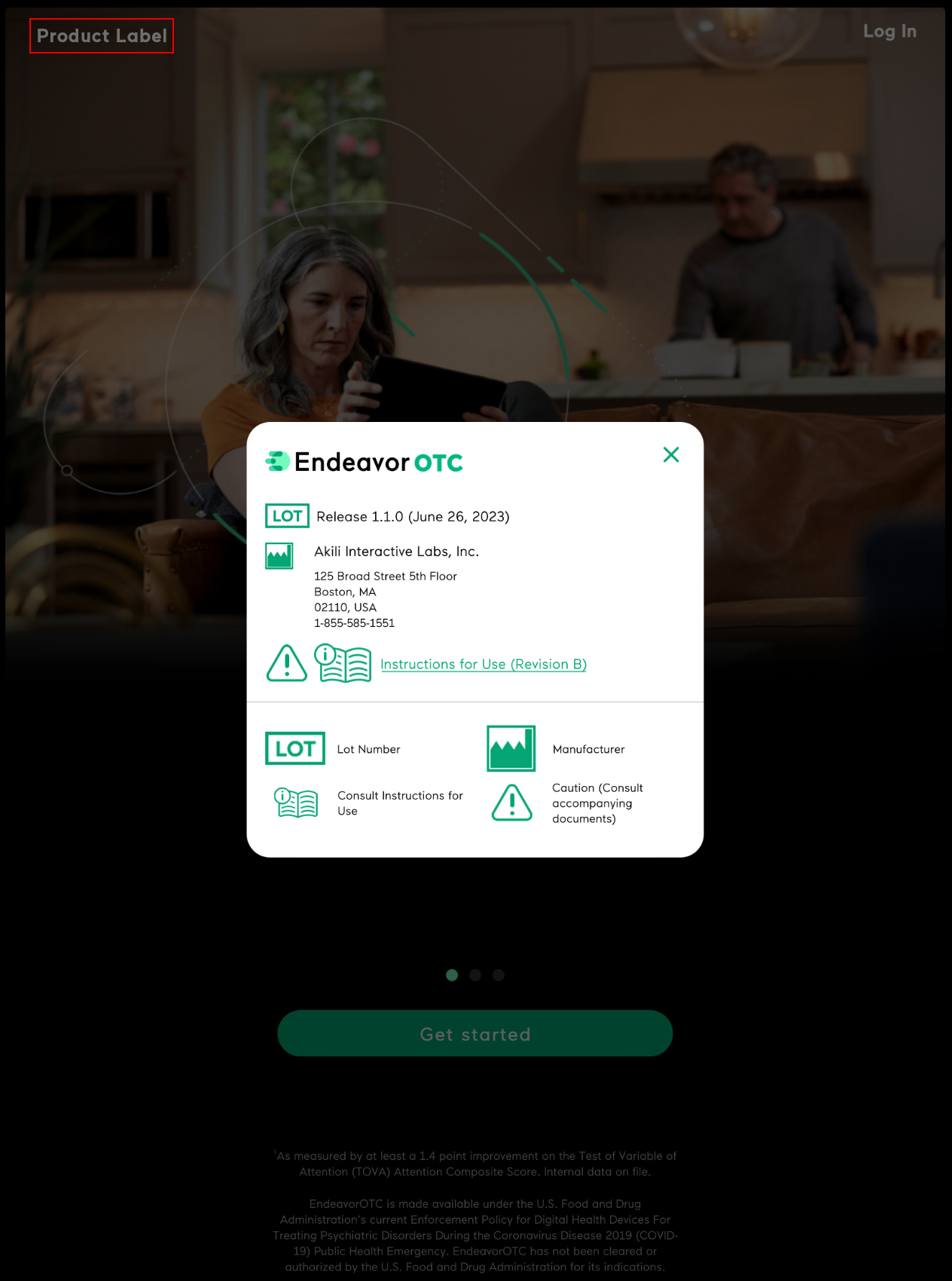Beyond Clinical Trials: How EndeavorOTC Uses Real-World Evidence for Innovation

EndeavorOTC is a game-based ADHD treatment that is clinically designed to treat cognitive impairment at the source and improve focus in adults. It’s a digital therapeutic built with the same technology behind EndeavorRx, the world’s first FDA-authorized prescription video game treatment for pediatric ADHD.1
One reason our products are labeled as digital therapeutics–rather than just wellness apps–is our commitment to scientific research. Our treatments have been tested in seven clinical trials in over 900 patients with ADHD, with findings published in leading academic journals like The Lancet and npj Digital Medicine.
Through these trials, we demonstrated that EndeavorRx and EndeavorOTC lead to improvements in attention and ADHD symptoms, and these studies were also central to the FDA’s decision to authorize EndeavorRx as a medical treatment. But what these trials weren’t able to do is demonstrate how the treatment impacts patients’ daily lives on a continual basis, which is why we began real-world evidence studies. Here are some differences between clinical trials and real-world evidence studies—which you can be part of!
The lowdown on clinical trials
Clinical trials, which are focused on determining whether a new treatment leads to improvements in a specific group, are central to medical research. Clinical trials are tightly controlled research studies, meaning that they often have strict rules for who is included and procedures to ensure participants are actively engaging in the treatment being studied.
The benefit of this type of design? By removing potential noise from the experiment, clinical trials make it easier to draw comparisons between a group that received EndeavorOTC and a group that received another treatment, producing high-quality data. At the same time, there are always questions about how well any of the observed benefits will translate to real-world improvement for real-world patients.
Oftentimes, medical product developers will stop their research after a clinical trial has shown their treatment is effective, which can leave lots of open questions. For example, how long do the effects of treatment last in the real world? Will the treatment be effective for someone who has additional diagnoses besides the one studied in the clinical trial? The way to answer these types of questions is to gather real-world data on a treatment, which can be done with a research registry study.
Enter: the research registry study
We continue to study how EndeavorOTC is helping patients in the real world by creating a paid research registry study, which focuses on understanding day-to-day improvements in the lives of EndeavorOTC users.
So what exactly is a registry study? A registry study uses observational methods to collect and store data from users of a product to evaluate outcomes over time.2 In other words, once someone begins using a commercially-available treatment (in our case EndeavorOTC), they are offered the option to participate in paid research, which involves completing brief monthly surveys about their symptoms and experiences. Our research team anonymizes and aggregates these data so we can better evaluate how engagement with Endeavor products helps to treat ADHD symptoms and improve daily functioning—outcomes like being able to find your keys and wallet, or being better able to plan and prioritize tasks.
What does the EndeavorOTC paid registry study involve?
Participation lasts 6-12 months and involves the following steps:
-
Subscribe to EndeavorOTC
Shortly after you subscribe to EndeavorOTC, you will receive an email inviting you to learn more about the registry research study. You’ll be taken to a page where you can review the study details, and—if you’re interested—submit a valid email address.
-
Check your inbox
We’ll send an email to the address you provided with unique details for you to enroll in the registry study. You’ll be given a link to create an account on the study platform and electronically sign the informed consent document.
-
Complete some surveys
You’ll next receive an email with a link to complete a set of baseline surveys asking about your symptoms, treatment history, and other areas.
-
Keep an eye out for our emails
Every one to three months, up to one year, you’ll be asked to complete follow-up surveys asking about similar topics, so we can understand how your symptoms are changing over time as you use EndeavorOTC.
Curious about research oversight and privacy? Know that we are serious about data privacy. This registry study has been reviewed and approved by an Institutional Review Board, and registered with clinicaltrials.gov.
Interested in learning more about the study or joining? Send an email to [email protected]!
About the Author
-
Caitlin Stamatis, PhD, is a clinical psychologist and researcher focused on novel uses of technology for mental healthcare. Her 40+ scientific publications have been featured in leading journals such as Nature Partner Journal: Mental Health Research, Depression & Anxiety, and Emotion. Dr. Stamatis has spent her career leading clinical research and product development to build and evaluate new digital mental health treatments, at both big companies like Google and more rapidly growing, specialized digital therapeutics companies like Akili. 
